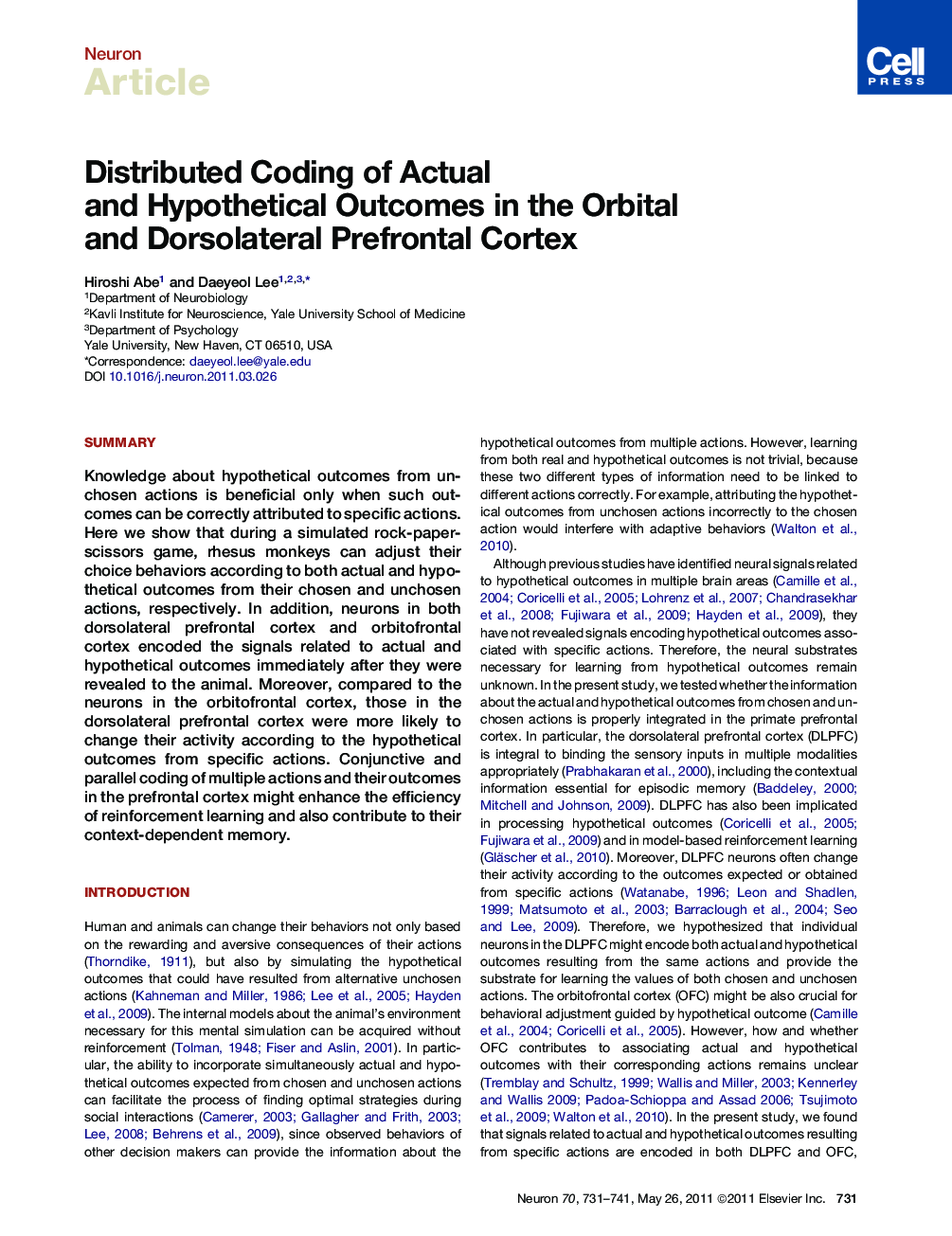| Article ID | Journal | Published Year | Pages | File Type |
|---|---|---|---|---|
| 4321766 | Neuron | 2011 | 11 Pages |
SummaryKnowledge about hypothetical outcomes from unchosen actions is beneficial only when such outcomes can be correctly attributed to specific actions. Here we show that during a simulated rock-paper-scissors game, rhesus monkeys can adjust their choice behaviors according to both actual and hypothetical outcomes from their chosen and unchosen actions, respectively. In addition, neurons in both dorsolateral prefrontal cortex and orbitofrontal cortex encoded the signals related to actual and hypothetical outcomes immediately after they were revealed to the animal. Moreover, compared to the neurons in the orbitofrontal cortex, those in the dorsolateral prefrontal cortex were more likely to change their activity according to the hypothetical outcomes from specific actions. Conjunctive and parallel coding of multiple actions and their outcomes in the prefrontal cortex might enhance the efficiency of reinforcement learning and also contribute to their context-dependent memory.
► Monkeys can learn from hypothetical outcomes of unchosen actions ► Neurons in the prefrontal cortex encode hypothetical outcomes from specific actions ► Orbitofrontal cortex encodes hypothetical outcomes from multiple actions similarly ► Activity related to actual and hypothetical outcomes shows a similar time course
